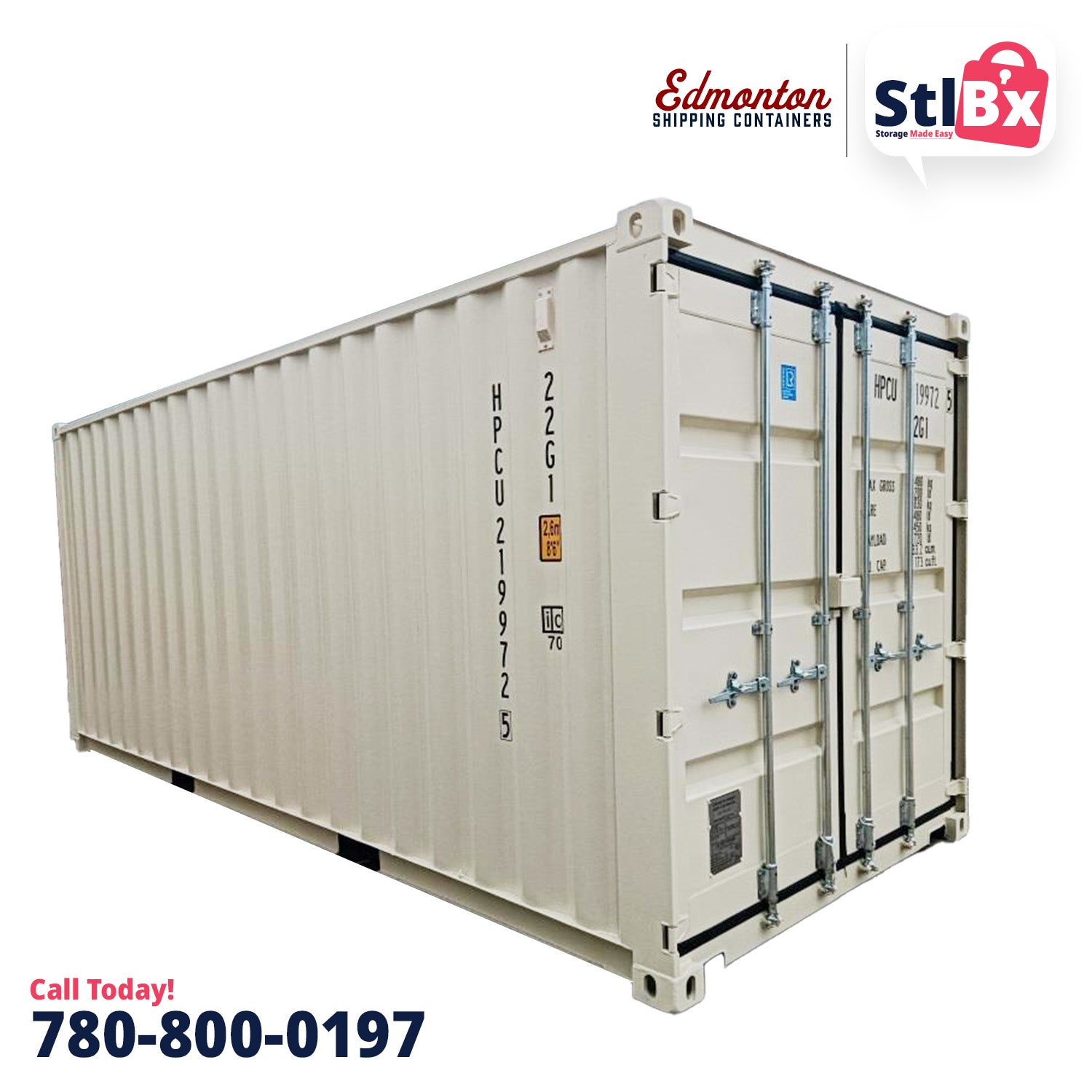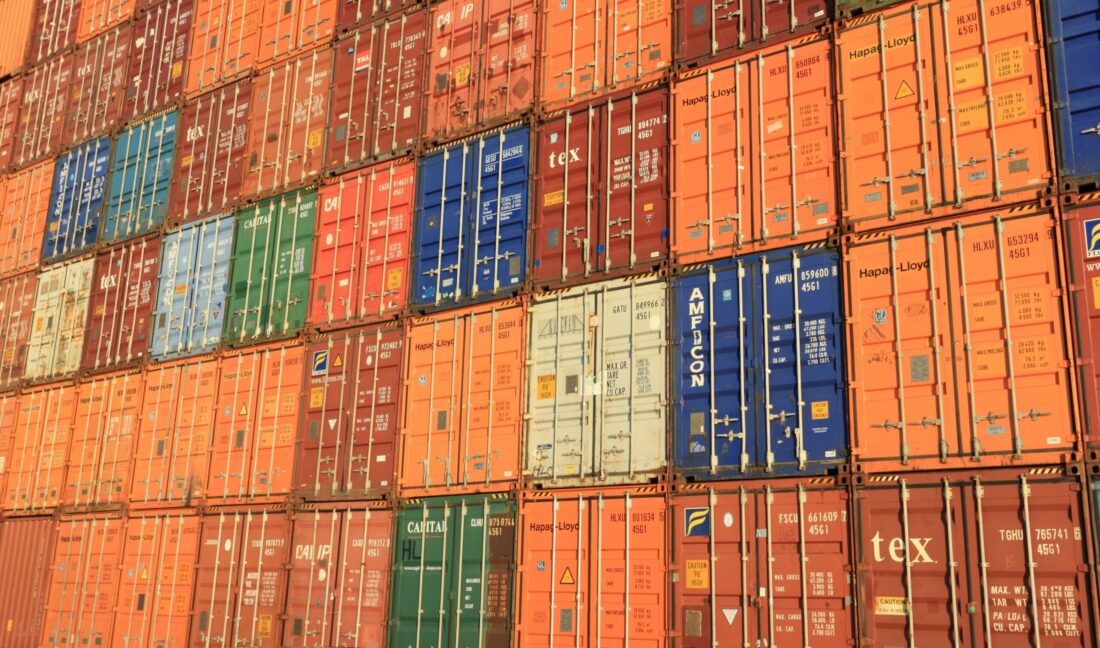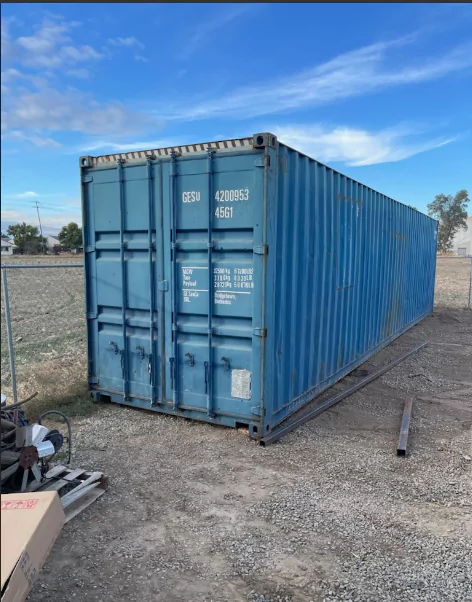10 creative designs using Shipping Containers
Wiki Article
Whatever You Required to Know Regarding Shipping Containers and Their Practical Applications
Shipping containers have actually evolved from simple tools for transportation to flexible structures with various practical applications. Their durable design and conventional sizing make them perfect for a variety of uses past delivery. From cutting-edge real estate options to lasting farming, their flexibility is noteworthy. Yet, the opportunities do not end there. Exploring their numerous features discloses unusual insights into imaginative options and modern-day difficulties. What various other functions could these containers play in today's globe?The Style and Framework of Shipping Containers

Internally, containers are designed to take full advantage of space, usually including wooden or steel floor covering that can support significant weight. Ventilation systems may be integrated to avoid wetness accumulation, which is vital for delicate cargo. Additionally, reinforced edges permit easy handling by cranes and forklifts, promoting smooth loading and dumping. This thoughtful style and structure add to the containers' convenience across different delivery and storage space applications.
Benefits of Utilizing Shipping Containers
While several transportation techniques have their advantages, the use of delivery containers sticks out due to their unparalleled versatility and efficiency. Shipping containers supply a standardized dimension, making them simple to transport and stack throughout different modes of transport, consisting of vehicles, trains, and ships. This standardization decreases packing and unloading times, thus boosting total performance.Shipping containers are constructed from durable products, supplying robust protection for products during transit. They are safe and secure and weather-resistant, decreasing the danger of damages from environmental aspects or theft. In addition, the modular style of shipping containers permits for easy modification, making it possible for organizations to adjust them for numerous objectives, such as storage space or mobile workplaces.
Lastly, their portability and cost-effectiveness make delivery containers an eye-catching alternative for services looking to enhance logistics and supply chain procedures. These advantages add to the expanding appeal of delivery containers in various sectors.
Imaginative Housing Solutions With Shipping Containers
Ingenious housing remedies have actually become an interesting application of shipping containers, leveraging their inherent strengths for property usage. These flexible structures provide a sustainable option to conventional structure products, often at a portion of the price. Engineers and developers have actually changed containers into trendy, functional homes, satisfying varied way of livings and preferences.

Additionally, shipping containers are eco-friendly, advertising recycling and reducing waste. Lots of projects concentrate on energy efficiency, integrating solar panels and environment-friendly roofs. As urbanization increases, these ingenious real estate options offer a useful action to real estate shortages while fostering a distinct architectural visual.
Shipping Containers in Retail and Pop-Up Shops
An expanding variety of stores are transforming to shipping containers as a dynamic service for retail rooms and pop-up stores. These functional frameworks provide an affordable choice to conventional store fronts, enabling organizations to develop special, eye-catching atmospheres that bring in consumers. Their modular design allows easy transportation and setup, making them suitable for short-lived or seasonal retail areas.Stores can customize shipping containers to show their brand identity, transforming them into visually appealing stores that attract attention in jampacked marketplaces. The compact nature of containers additionally motivates effective usage of room, permitting creative layouts that maximize consumer circulation and engagement. In addition, shipping containers can be positioned in unique areas, such as uninhabited whole lots or city parks, enhancing accessibility and foot website traffic.
As the retail landscape progresses, delivering containers give a adaptable and cutting-edge option that satisfies the demands of modern-day customers while boosting the shopping experience.
Lasting Farming Practices Making Use Of Shipping Containers
Sustainable farming methods progressively include shipping containers as ingenious options for agriculture - shipping container storage. These container ranches use hydroponics to optimize room and source effectiveness, offering an affordable approach to food manufacturing. By changing delivery containers right into agricultural centers, farmers can deal with food security and ecological concerns simultaneouslyContainer Farming Benefits
While conventional farming deals with challenges such as land shortage and environment change, container farming presents a practical alternative that makes best use click this of space and resources. This ingenious method permits year-round crop production in regulated settings, minimizing reliance on climate condition. Container ranches make use of less water than conventional farming, advertising sustainability and preservation. They can be developed in urban locations, bringing fresh fruit and vegetables closer to customers and reducing transport exhausts. In addition, the modular nature of shipping containers enables scalability, allowing farmers to adjust procedures based on need. Container farming additionally lessens chemical use by creating a confined environment, ultimately boosting food safety. As urban populations expand, container farming emerges as a functional option to fulfill the raising need for regional, sustainable food sources.Hydroponics in Containers
Hydroponics, which allows plants to expand without dirt by making use of nutrient-rich water, grows within the confines of delivery containers, making it an excellent approach for metropolitan agriculture. These containers develop a regulated environment that maximizes temperature level, light, and moisture, allowing year-round cultivation. With restricted space in urban locations, shipping containers use a scalable service for growing fresh produce. Hydroponic systems within containers can consist of different techniques, such as nutrient film technique (NFT) and deep water society (DWC), which maximize yield while reducing water use. This innovative approach not only boosts food security yet likewise decreases the carbon footprint associated with standard farming approaches. Hydroponics in containers represents a forward-thinking remedy for lasting urban food production.Cost-efficient Farming Solutions
As food manufacturing deals with raising obstacles because of climate modification and urbanization, shipping containers become a cost-effective remedy for agriculture. These versatile structures can be repurposed for numerous sustainable farming techniques, such as hydroponics and upright farming. By making use of controlled settings within containers, farmers can optimize development cycles and minimize source usage, including water and fertilizers. Additionally, delivering containers can be purposefully positioned in metropolitan locations, minimizing transportation costs and boosting access to fresh produce. Their modular nature enables scalability, making it possible for farmers to increase procedures as demand grows. Repurposing containers adds to squander decrease, aligning with green farming initiatives. In general, shipping containers present ingenious chances for efficient and lasting food manufacturing.Emergency and Calamity Alleviation Applications of Shipping Containers

Organizations regularly make use of shipping containers to develop mobile clinics or field hospitals, making certain that healthcare gets to those in requirement. Additionally, they can be changed into command facilities for collaborating rescue procedures, thus boosting organizational efficiency during situations.
Furthermore, containers can be customized to keep important goods such as garments, water, and food, guarding materials until they are dispersed. Their movement allows them to be easily transported to different locations, making sure that help shows up where it is most urgently required. Overall, shipping containers play a pivotal duty in enhancing the effectiveness of catastrophe alleviation initiatives worldwide.
Regularly Asked Concerns
Exactly How Are Shipping Containers Transported From One Location to One More?
Shipping containers are carried using trains, ships, and trucks, utilizing cranes for unloading and loading. This multi-modal see transportation system makes certain effective movement throughout land and sea, attaching worldwide supply chains and assisting in worldwide trade.What Is the Average Life Expectancy of a Delivery Container?
The typical life expectancy of a shipping container usually ranges from 10 to 25 years, depending on upkeep, use, and ecological elements. Proper care can extend their functionality, while forget might result in damage and damage.Can Shipping Containers Be Modified for Various Uses?
Yes, delivering containers can be modified for numerous usages. They work as homes, offices, pop-up stores, More Bonuses and storage systems. Their flexibility enables for creative adjustments, making them suitable for a vast range of applications.Are Shipping Containers Environmentally Friendly?
Shipping containers can be eco-friendly, as they advertise reusing and repurposing. Their durability decreases waste, while their usage in different real estate and companies decreases the demand for brand-new products, adding to lasting practices.Exactly how Do I Choose the Right Dimension Shipping Container?
To select the appropriate dimension delivery container, one have to analyze storage demands, take into consideration the designated use, and assess area accessibility - sea can for sale. Typical sizes consist of 20-foot and 40-foot containers, each serving various storage and transport requirements efficiently
Innovative housing services have arised as an interesting application of shipping containers, leveraging their inherent toughness for residential usage. The versatility of delivery containers allows for innovative formats, from single-unit dwellings to intricate multi-container arrangements. Lasting farming techniques progressively include shipping containers as cutting-edge remedies for agriculture. Furthermore, the modular nature of delivery containers allows scalability, allowing farmers to adjust operations based on need. Hydroponics, which allows plants to expand without soil by making use of nutrient-rich water, thrives within the confines of delivery containers, making it a perfect method for city farming.
Report this wiki page